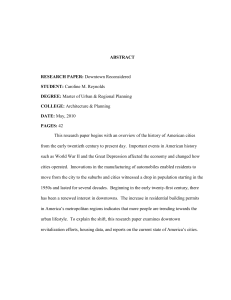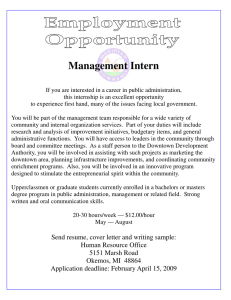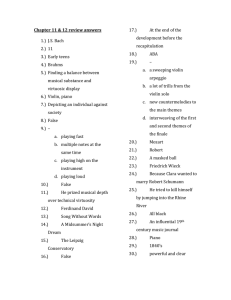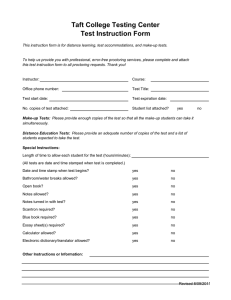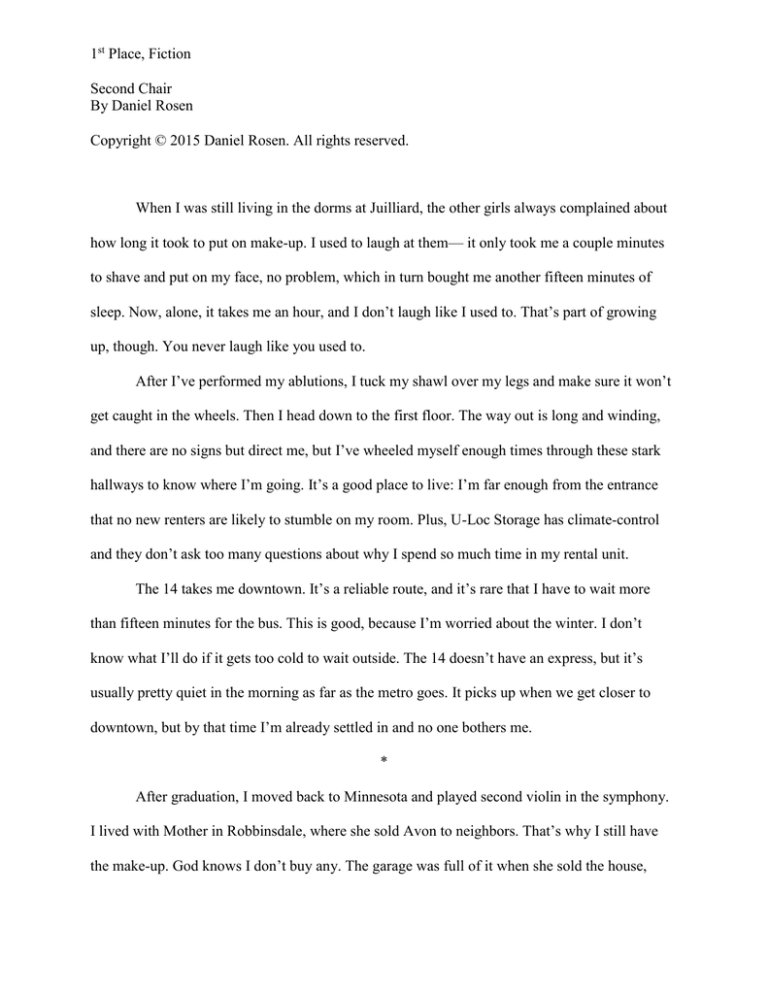
1st Place, Fiction
Second Chair
By Daniel Rosen
Copyright © 2015 Daniel Rosen. All rights reserved.
When I was still living in the dorms at Juilliard, the other girls always complained about
how long it took to put on make-up. I used to laugh at them— it only took me a couple minutes
to shave and put on my face, no problem, which in turn bought me another fifteen minutes of
sleep. Now, alone, it takes me an hour, and I don’t laugh like I used to. That’s part of growing
up, though. You never laugh like you used to.
After I’ve performed my ablutions, I tuck my shawl over my legs and make sure it won’t
get caught in the wheels. Then I head down to the first floor. The way out is long and winding,
and there are no signs but direct me, but I’ve wheeled myself enough times through these stark
hallways to know where I’m going. It’s a good place to live: I’m far enough from the entrance
that no new renters are likely to stumble on my room. Plus, U-Loc Storage has climate-control
and they don’t ask too many questions about why I spend so much time in my rental unit.
The 14 takes me downtown. It’s a reliable route, and it’s rare that I have to wait more
than fifteen minutes for the bus. This is good, because I’m worried about the winter. I don’t
know what I’ll do if it gets too cold to wait outside. The 14 doesn’t have an express, but it’s
usually pretty quiet in the morning as far as the metro goes. It picks up when we get closer to
downtown, but by that time I’m already settled in and no one bothers me.
*
After graduation, I moved back to Minnesota and played second violin in the symphony.
I lived with Mother in Robbinsdale, where she sold Avon to neighbors. That’s why I still have
the make-up. God knows I don’t buy any. The garage was full of it when she sold the house,
though. Towers of cardboard boxes, from floor to ceiling. Skin-care creams, powders, perfumes,
lotions, lipsticks, nail polish, towelettes, colored contact lenses, hair colors, hair sprays and gels,
deodorants, hand sanitizers, baby products. The whole nine yards— she left it all when she
disappeared.
I guess I don’t blame her, but I wish she’d been more understanding. I’m lucky. The
diagnosis was monomelic ALS. That means only my legs are affected, for the most part. Still, I
missed my auditions because of inpatient visits at Hennepin County Medical, and when I
couldn’t play in the symphony anymore, I think Mother lost it.
*
Now I play downtown, and my chair has wheels. The audience isn’t so different though,
still suits— black, gray, blue, gray, black.
Jose, pale and skinny, plays ukulele under the skyscrapers along Nicolett Avenue. He
hisses at me like a cat when I roll by, but I ignore him. Jose gets the early birds and I get the
lunch crowd. Our arrangement is unspoken but he keeps playing Resigned Acceptance whenever
I walk by, and so I know he understands.
I prefer to set up in front of the new burrito joint near 11th. The lunch crowd moves at a
slower pace and if I’m lucky, I can make my month’s rent in a day and get out of downtown
while there’s still room for me on the bus. Passengers are supposed to make room for you, if
you’re in a chair, but things don’t always go the way they’re supposed to.
*
After Mother left, I spent a fair amount of time crying. I didn’t use make-up for a month.
Tears and make-up don’t mix well. My brother came back to the States to visit a couple times
before the house was sold. That’s when he helped me move the boxes of make-up and the
sawhorse to the LockUp storage. I didn’t tell him I was planning on living there, but he probably
knew. I figured it wouldn’t be for long. Auditions would be coming back up in a year and I’d be
right back to where I was before the diagnosis. Like I said, I was lucky. Monomelic amyotrophy
had only withered my legs.
That was before I discovered I couldn’t read music anymore. When I tried practicing for
my audition, the score just slipped away from me, like my eyes just saw right through the notes. I
felt like I was falling into the ledger lines. I couldn’t sight-read at all. The doctors told me it
might have been a side-effect of the disease, some sort of minor dementia or extraocular
disorder. My brain had betrayed me.
*
So now I play downtown, or I have been playing downtown anyway, and I will until it
gets too cold. I think I could play all winter with fingerless gloves on, as long as I stay bundled
up and out of the wind, but a violin is far more delicate than the human body, even a broken
body like mine. There is a crack running along the saddle already, and if it gets worse, I fear the
neck will be entirely separated from the body. I don’t know what I would do without my violin,
and so I put it out of my mind.
Even if I can no longer read it, my fingers still remember Chaconne, and I can speed
through the Bach Double without missing a step. Tchaikovsky pops in from time to time, but
somehow I’ve forgotten most of the pieces that I practiced for hours.
More and more, I improvise. I play what I see around me. I bow out the rough chop of
Cackling Mistress. I tease at Fat Man With Mustard Stained Tie. Sometimes I play A Crowd
Gathers, but this is usually on Wednesdays or Thursdays and never lasts long. My audience
shrinks away autumn grows colder.
In November, while I’m playing Drunk Bleeds in the Streets, a man with a dark blue suit
watches me for the full 18 minutes, up until the end when the sirens fade to a dull whine. He
claps and smiles and puts a $20 bill in my case. The smile doesn’t quite reach his eyes.
Then he approaches me and leans in and says he’s never gotten blown by a cripple. I play
Polite Refusal. He tells me he’ll give me $100 if I come back to his office with him, emphasis on
the verbs. I keep playing. His smile disappears and he hisses at me like a cat, like Jose. $200. I
keep playing, launching into Please Leave. He turns scarlet, spits at me, and stomps away .
I finish the song, then put away my violin. My wrists are suddenly tired. It’s only
October, and I’m already getting cold. I wonder briefly if I should stop wearing make-up, if that
would help. If I’m just creating trouble for myself. I wish I could ask Mother. She’d know.
On the bus back home, a young woman watches the news in front of me on her tablet, her
breath fogging the screen. I watch over her shoulder. The meteorologist is a woman, very tall and
very tan. Her lipstick is thick and fire-engine red. I wonder if it’s Avon. I might have the same
tube boxed up in my space.
“It’s going to be a warm winter,” the meteorologist says, smiling. Her teeth are wide and
white. Even the tone of her voice is rich and warm, like the tone of a finely maintained Guarneri
or Stradivarius. It’s comforting.
For all these things, I thank her silently. We could all use a warm winter. I wonder if it
will be warm for Mother, wherever she is. I hope so.

